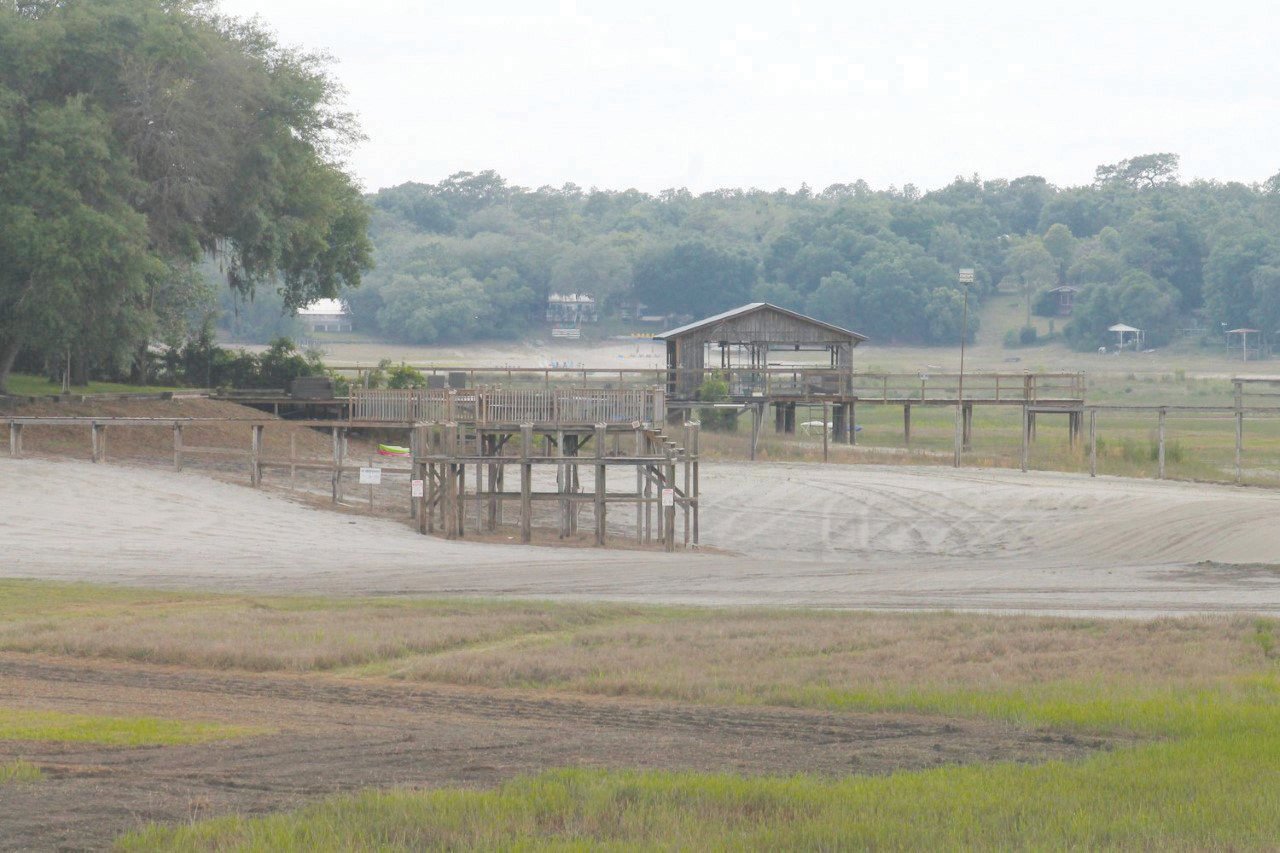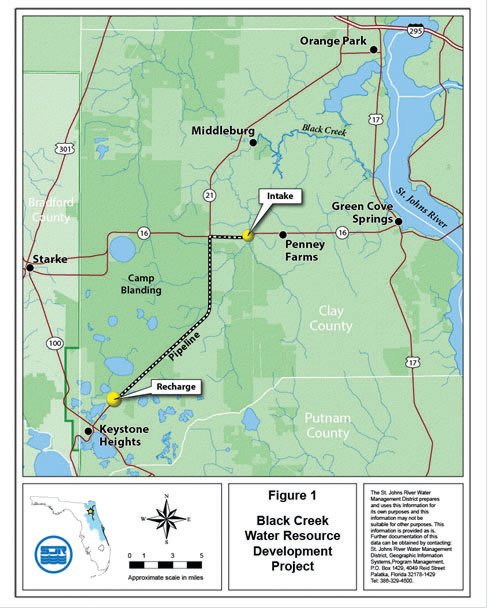Black Creek Project set to save Keystone Lakes, area economy
The $100 million project will bolster the Florida aquifer and Keystone Heights’ ecotourism
KEYSTONE HEIGHTS – Lakes Brooklyn and Geneva, the cardinal foundations of the Florida aquifer, are drowned in distress but now have a chance of recovery.
The Black Creek Water Resource …
This item is available in full to subscribers.
Attention subscribers
To continue reading, you will need to either log in to your subscriber account, below, or purchase a new subscription.
Please log in to continueDon't have an ID?Print subscribersIf you're a print subscriber, but do not yet have an online account, click here to create one. Non-subscribersClick here to see your options for subscribing. Single day passYou also have the option of purchasing 24 hours of access, for $1.00. Click here to purchase a single day pass. |
Black Creek Project set to save Keystone Lakes, area economy
The $100 million project will bolster the Florida aquifer and Keystone Heights’ ecotourism
KEYSTONE HEIGHTS – Lakes Brooklyn and Geneva, the cardinal foundations of the Florida aquifer, are drowned in distress but now have a chance of recovery.
The Black Creek Water Resource Development Project, a plan developed by the St. Johns River Water Management District, aims to boost the recharge of the Upper Floridan aquifer in northeast Florida by using the excess flow from flood-prone Black Creek.
Water will flow from Black Creek to a transmitter in a 17-mile pipeline before moving to Alligator Creek, which bleeds into Lake Brooklyn and Lake Geneva out of Keystone Heights, according to the SJRWMD.
The Governing Board of the St. Johns River Water Management District approved the completion of a contract July 12 to start the first phase of the project, according to the SJRWMD.
The project will pump up to 10 million gallons of water a day from the creek to the lakes dependent on the creek’s flow. Its construction will cost about $100 million.
Lynn Rutkowski, city manager for Keystone Heights, said the project will begin in late August, and water will start pumping through the pipeline about two years after construction begins.
She said the surface of Lake Brooklyn and Lake Geneva lie atop a sand base, allowing for water to seep into the aquifer.
The upper Florida aquifer depends on Lake Geneva and Lake Brooklyn when it’s drought stressed. The lakes recharge the aquifer and supply more water.
“This is a long time coming for Keystone Heights and The Lake Region,” Rutkowski said. “We are very excited that this project will not only replenish the aquifer ensuring water supply, it will also bring our lakes to a healthy level allowing for our community to enjoy the recreational activities they once did.
She said Keystone Heights’ economy is built around the ecotourism partly supplied by the two lakes.
“For those of us who grew up Clay County, we’ve seen firsthand the drastic changes in our lake levels over the past few decades,” said former state senator Rob Bradley who sits on the St. Johns River Water Management District Board. “This project will help us address that and more, all while protecting Florida’s natural systems.”
Fueling Lakes Brooklyn and Geneva will also catalyze the rise of ecotourism in Keystone Heights.
Brandon Ludwig, 22, is a fourth-generation Keystone Heights resident and has been living in the town all his life.
Ludwig said boat ramps at Lake Geneva haven’t reached the shoreline in the last decade. People have sold their houses and moved away because of the lack of water activities.
“A lot of our lakes in the area have virtually disappeared,” Ludwig said.
He lives on Lochlommond Lake, a Keystone Heights lake north of Lake Brooklyn, and noticed a drop in water levels around 2008-2009. He said he could stand in the middle of the lake, and the water would only go up to his shoulders.
Ludwig attended multiple community meetings discussing the project in its later stages of development to support the cause and be a part of the transformation.
“It's a natural solution that sort of kills two birds with one stone,” Ludwig said. “It helps alleviate flooding on Black Creek while providing a water source to Lake Brooklyn.
Boating stores and restaurants on the water have gone out of business since the water level’s decline on both lakes, and the economy has suffered, Ludwig said.
“To see this underway, starting in August, is going to be a huge step forward to rebuilding our community’s economic vitality, and making it a place that people want to live for years to come,” Ludwig said.
“As someone who grew up there [Keystone Heights] and wants to return there and raise a family there,” Ludwig said, “having a vibrant community is really at the heart of it all.”
He predicts Keystone Heights won’t see the results from the project until 2025, but he’s very excited about what it will become.
“Seeing the recovery of those lakes among our community is something that really builds morale and makes it where people want to return to the future,” Ludwig said.
Ludwig appreciates the moves Bradley pushed for to bring the project to fruition.
“Our city has really been on the upswing because of the potential that this pipeline brings to bring more stable lake levels to our area,” Ludwig said.
Middleburg residents stirred controversy in the county, as some believed the pumping would drain the Black Creek and harm it, he said.
Scott Olmstead, 48, bought a house on Lake Geneva in October 2021 to rent it out as an Airbnb. He said people complained about possible contamination, as the creek’s water and the lakes’ water collide through the pipeline.
“I’m not concerned by it,” Olmstead said. “It’s more important to see the lakes fill back up.”
Vivian Katz-James, president of Save Our Lakes Organization, said the SJRWMD added the filtration system in later plans of the project to avoid the coalition of Black Creek’s tea-colored water and the lakes’ clear water; the decision came after public backlash.
“Once the thing’s [project] moving, we'll get it up and down and start talking about getting a filtration system,” she said. “In other words, that phase two of the project.”
Katz-James has been the president of the Save Our Lakes Organization for 12 of the past 13 years and ensures a representative of the organization attends every Water District Governing Board meeting held monthly.
“If we run out of water, I don't care if you live in a mansion or if you live in a tent; if you don’t have it, you don’t have it,” Katz-James said.
Every representative of the organization who attends the monthly meetings wears a solid red shirt in confidence and takes a front-row seat reserved for them. The organization asks questions and addresses concerns Northeastern Floridians may have about the project.
“If we’re not doing anything, why bother with it?” Katz-James said. “This is the biggest thing in 50 years.”
Katz-James said Black Creek holds excess flow 75% of the time, so it can allow for Lakes Geneva and Brooklyn to recharge the Florida aquifer.
She’s excited for what’s to come.
“It’s the greatest thing since peanut butter,” Katz-James said. “It’s going to do so much for so many.”












